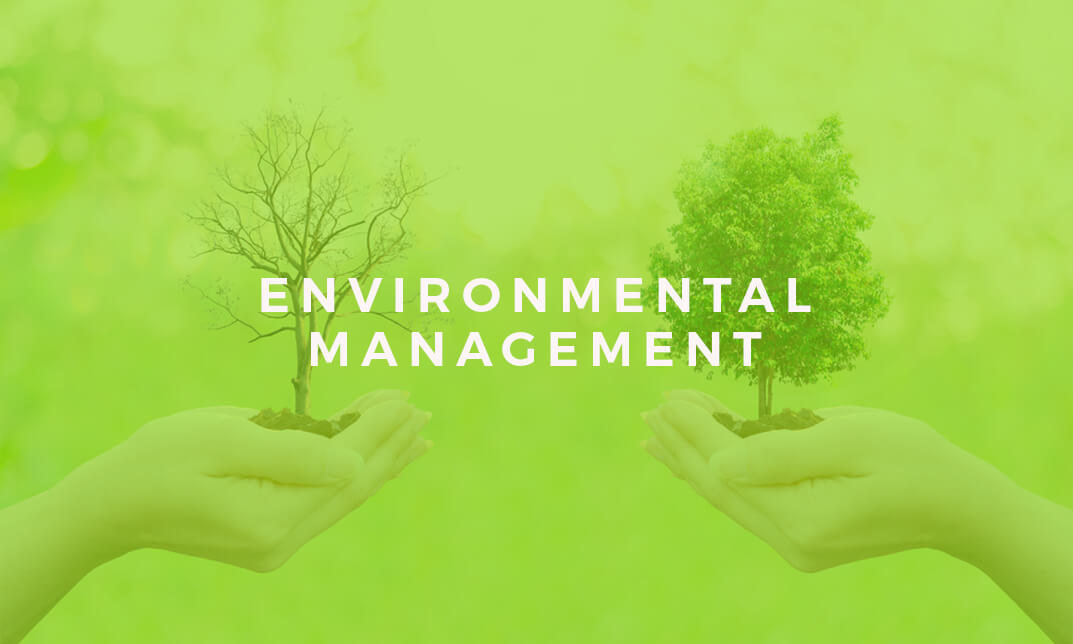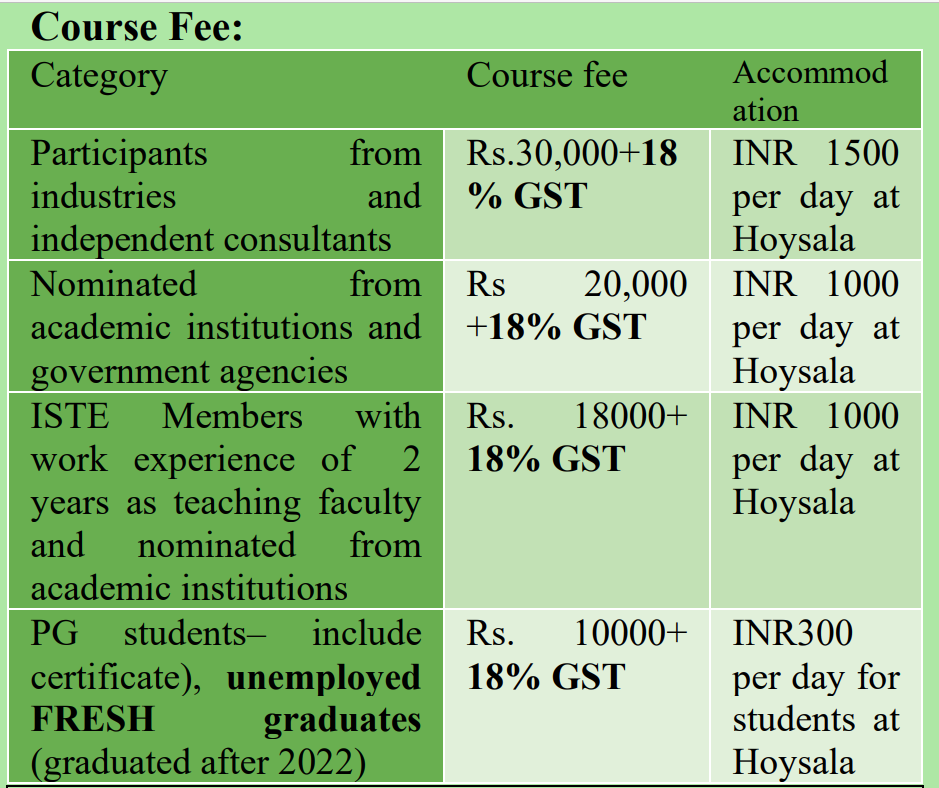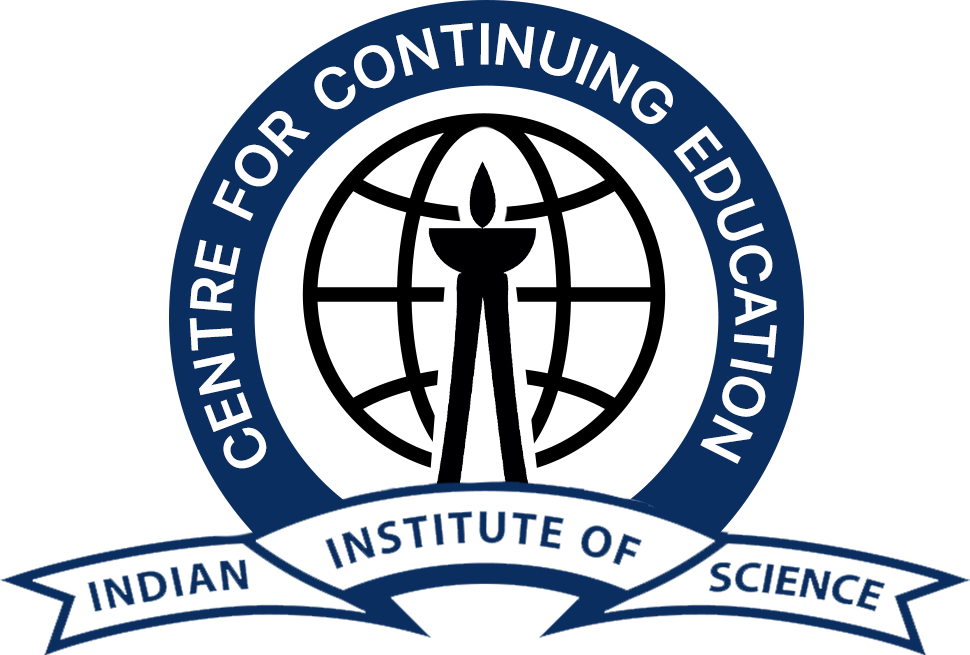Environmental Management
(EM2024): Course Content
This course provides an overview of the key concepts and principles in environmental management, areas of global and national environmental concern, and strategies and tools for effective environmental management. Attempt to understand the genesis of environmentalproblems; the concerns that lead to various international
and national initiatives to tackle them have been made inthis course. Various tools that can be used to addressenvironmental problems and the role that the professionals can play in managing the environment in their respective areas would be discussed.
1. Principles of Environmental Management.
2. Principles of Ecology, Environment &
Environmental Management.
3. Municipal Solid Waste Management – Principle and case studies
4. Policies and Legal Aspect of Environmental Management.
5. Overview of Environmental Impact Assessment
(EIA); Preparation and Review of Environmental Impact Assessment Report.
6. Environmental Audit.
7. Life Cycle Assessment as EM Tool.
8. Environmental Management Systems Standards: ISO 14000 (EMS).
9. Environmental Design.
10. Environmental Economics.
11. Application of Geoinformatics (Geographic Information System (GIS) and Remote Sensing) in Environmental Management.
12. Carrying capacity assessment Each of the self-learning format versions of the course complies with high quality standards and includes a tutor’s guide. A comprehensive list of references (and suggested reading) is provided at the end of each course to enable the learners to pursue relevant further reading. The methodology involved thorough course packaging (i.e., development, design, and materialsproduction).
Course Schedule
1 September – 7 December 2024
Course Mode: Hybrid
Accommodation Available

Course Faculty:
Dr. T. V. Ramachandra
Energy & Wetlands Research Group,
Centre for Ecological Sciences
New Bioscience Building, CES TE15,
Indian Institute of Science
https://wgbis.ces.iisc.ac.in
E-mail: emram.ces@iisc.ac.in
Phone: 080-22933099/22933503/23608661

Course Schedule
• Course material (is available in self-learning format:
http://wgbis.ces.iisc.ernet.in/energy/books/index.htm).
• Classroom briefing and introductory sessions at the beginning of the courses (6 days: During 1-6 th September 2024 @ CCE Lecture Hall) followed by the first term test (covering 5 chapters, on 4 th Sept 2024, 2-5 PM).
• October and November 2024: Interactive session through the internet (web and e-mail) for two months. The course will be active only as online study through the Internet and interaction with course faculty by chat sessions, Internet discussion forums and e-mail. Participation in online tests and assignments are mandatory.
• November 2024: Announcement of dissertation and implementation by participation.
• December 2024: Final Contact session (01-07 Dec 2024, interactive session, project presentations, guest lectures), Final exam (4 th Dec 2024 and 7th Dec 2024, 2-5 PM). In all these modes of teaching, structuring of course is done to fuse all the three core components of competency like attitude behaviors, skills and knowledge.
Assignments: Assignment submission can be done through e-mail: emram.ces@iisc.ac.in, within the specified date.
Feedback: Participants who would like to have the feedback from the tutor can pose their queries in the discussion forum or through chat sessions or through e-mail or by post. Tutors /Resource Persons: The tutors will act as catalysts, emphasized on participatory style of learning and providing ample scope for discussions,
and the resource persons facilitate the learning process. Successful realization of Competence Based Education heavily depends on the teachers’ contribution to the curriculum reform. Teachers involved here have wide scope from the lesson level to the level of curriculum development, and adapt new role of coach of the students’ learning processes. Faculties and course coordinators are from Indian Institute of Science.
Venue: The classroom sessions and examinations will be held at CCE Lecture Hall (Next to IISc Students Hostel office), IISc, Bangalore-560012
Entry Requirements: In-service professionals (Post-graduates/ graduates with 1 year work experience), fresh
graduates, PG course students are eligible for this course. Participants are expected to take part in all activities that form part of course in addition the participants should work on individual projects. During course, participants should compulsorily attend to interactive chat session, which is considered while grading. Participants should actively participate in the course for best results. A certificate along with grades will be given to all the successful participants. Study schedule: Course would be completed within 4 months. Candidates are required to spend time in reading and carrying out the assignments. The number of weeks of study for the course, will of course, depend on candidate’s chosen rate of study. This allows sufficient time for study, submission and returns of assignments and also provides the opportunity for two courses to be taken parallel with in 4 months.
Reward of participation: Candidates will be graded as A+, A, B+, B, C and D according to the performance from Centre for Continuing Education, Indian Institute of Science, Bangalore-560012.
Levels of Evaluation: At the concept level, after candidates go through each concept, will be evaluated online by randomly displaying multiple-choice questions.
Each question carries some weightage of marks. Based on the test performance, the system checks the number of correct answers and evaluates the performance. At course level, after completing all the concepts, candidates are given a final exam, which will be held at CCE. Concept level evaluation marks will also be considered for grading. Completion of a project is a partial requirement for the course. Apart from this, candidates will be assessed on the basis of assignment submission, active participation in chat sessions, contact sessions and quizzes, project report submission and presentation, mid-term and final examination scoring. Facility to communicate among participants: Sharing experiences and establishing contacts is an important aspect of learning. Registered participants can contact other participants during contact sessions, in Internet discussion forums and chat sessions and through personal e-mail id, and also a Course e-mail id allotted by the coordinator.

